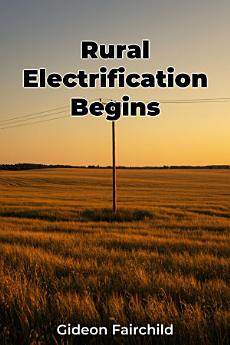Rural Electrification Begins
Feb 2025 · Publifye AS
Ebook
62
Pages
family_home
Eligible
info
reportRatings and reviews aren’t verified Learn More
About this ebook
""Rural Electrification Begins"" explores the transformative impact of bringing electricity to rural America during the Great Depression as part of Roosevelt's New Deal. This initiative, spearheaded by the Rural Electrification Administration (REA), aimed to modernize agricultural practices and stimulate economic recovery. One intriguing fact is that only about 10% of rural farms had electricity before the REA, highlighting the vast disparity between urban and rural living standards. The book examines the economic rationale, political battles, and social changes that accompanied this ambitious undertaking, demonstrating how government policy directly influenced economic development and improved life for rural communities.
The book progresses chronologically, starting with the dire conditions in rural areas, then moving to the political hurdles of establishing the REA, and finally assessing the long-term consequences of electrification. It uniquely blends quantitative data with qualitative narratives, including oral histories from farmers and REA administrators. For example, the adoption of electric water pumps significantly increased farm productivity by reducing the time and labor needed for irrigation.
This history provides valuable lessons applicable to modern challenges, such as expanding broadband access, and reconsiders the New Deal as a proactive force for modernization and equitable development, not solely a welfare program.
Rate this ebook
Tell us what you think.
Reading information
Smartphones and tablets
Install the Google Play Books app for Android and iPad/iPhone. It syncs automatically with your account and allows you to read online or offline wherever you are.
Laptops and computers
You can listen to audiobooks purchased on Google Play using your computer's web browser.
eReaders and other devices
To read on e-ink devices like Kobo eReaders, you'll need to download a file and transfer it to your device. Follow the detailed Help Center instructions to transfer the files to supported eReaders.







